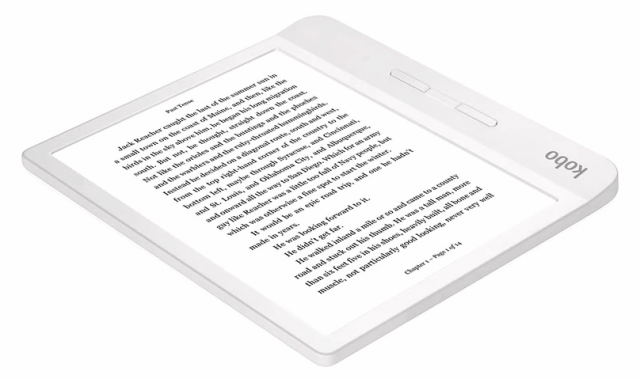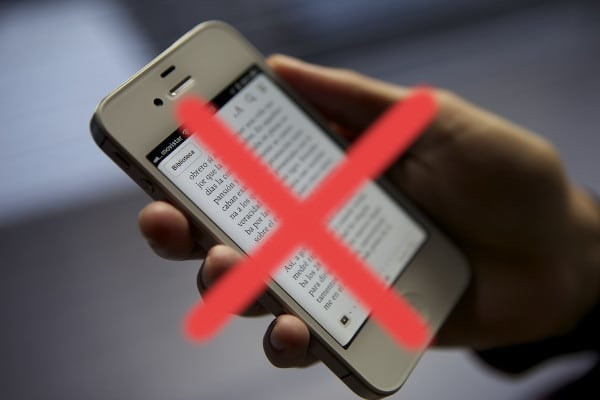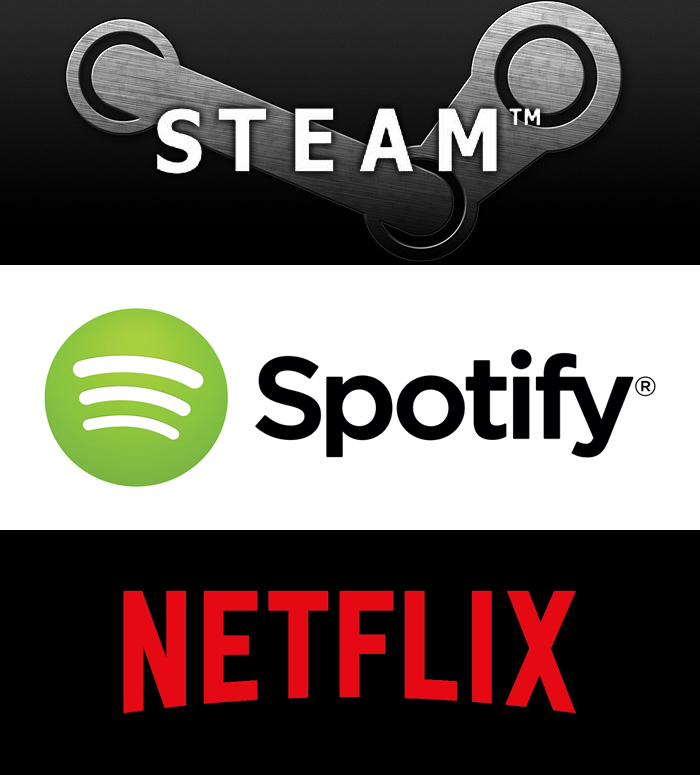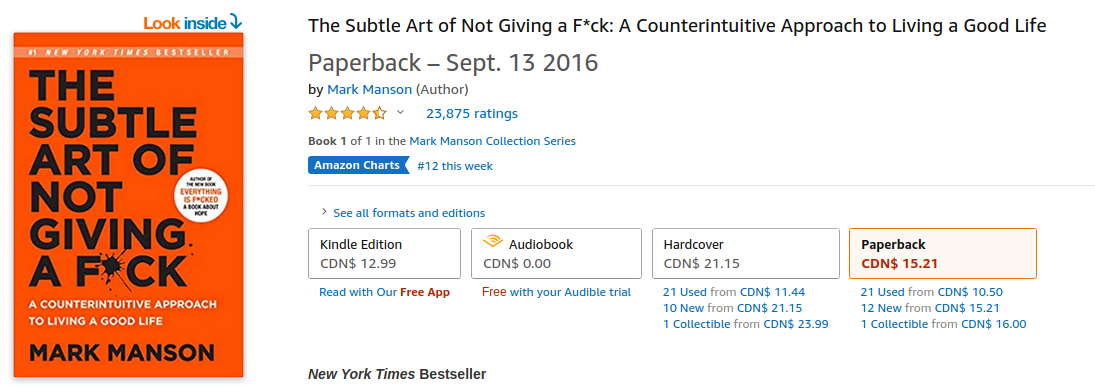13 minutes
I love E-readers

Reading books. It never gets old.
If you had the pleasure to receive formal education, you probably know how to read. This is a skill that will follow you for the rest of your life.
Out of all the hobbies I had so far, I find that reading is both the least demanding and most rewarding hobby of all. Really, all you need to read are a working set of eyeballs and a brain that can parse information. There is no notion of speed, competition. You can’t really sprain your wrist by reading. You don’t need a working set of legs. You don’t need friends, and you don’t need an internet connection. As your body starts decaying, you surely will have to cross out hobbies from your list, simply because your body cannot provide the necessary requirements to partake in said hobbies. It should be no surprise, then, that the act of reading will stay on this list until the very end.
Look, many have tried before me to summarize why reading is such a great hobby. I could never do it justice, despite my best attempts. But you’re reading this right now, so hopefully that means you’re at least halfway to having seen the light.
Real benefits of using E-readers
I find E-readers wonderful because they make my life easier and more comfortable. Here is a non-exhaustive list of quality of life improvement provided by E-readers that I could hardly live without anymore:
- Ease of transport. I can carry 50+ books in my coat’s inside pocket.
- Buying books online. No need to wait for shipping or visit the bookstore, new books are delivered instantly.
- Change font styles and sizes on the fly. This is a game changer for anyone who bought a book with an annoyingly small font.
- Definitions on the fly in multiple languages, and Wikipedia support
- Highlighting and note-taking, no need to carry pens or a notebook
- Never lose your progress. If I drop my E-reader, there is no risk that a bookmark will disappear. No need to fold pages, either.
- Get access to thousands of copyright-free works (e.g. Project Gutenberg)
- Read in the dark without an external source of light
- Every book I read on my E-reader didn’t need to be manufactured. That’s a win for everyone.
“I don’t need E-readers because I can read books on my phone/tablet.”

Sure, you can, but it does not mean you should. Indeed, all the features listed above could be done on a smart phone, but doing so greatly impacts the potential enjoyment one would get from their reading experience.
- Phones and tablets receive notifications that will distract you.
- The screen found on phones and tablet is reflective, making it painful to read under the sun.
- The type of lighting on E-readers will be less painful in the dark than on any other device.
- Phones and tablets empty their battery at least 5 times faster than an E-reader.
Bottom line, if you are an avid reader and can afford the comfort of reading on a dedicated reading machine, you should give it a try.
Fake cons about E-readers
Alright, this is where I get to get things off my chest.
Every time I have discussions about E-readers, the same “cons” come up. And to be frank, they sound to me like excuses not to try this new medium. Let’s review some of them, courtesy of Psychology Today
“E-readers are expensive!”
That’s the first one that comes to everyone’s mind, I suppose. If you buy a new E-reader, a basic model starts at 120 CAD. I personally use a Kobo Libra H2O that retails for 200 CAD. I agree, not pocket change!
But saying E-readers are expensive is kind of missing the big picture. They are more expensive in the short term, sure, just like a ski pass is more expensive than paying for a single ticket. If you purchase an E-reader, the more you use it, the more you will get value out of it.
Side note, do you know how many free digital books are available out there? I’m not even talking about piracy, I mean books with expired copyright, or free licenses. Check out Project Gutenberg for an astounding amount of free, quality eBooks.
tl;dr: If you use your E-reader to its full potential, it will pay for itself quickly.
“I prefer the physicality of books!”
- “I prefer to flip the pages!”
- “I like the smell of ink!”
- “I like the excitement of flipping the last page!”
- “I like the sound of the pages under my fingers!”
I don’t judge people who prefer the physicality of books. I get it, I used to say that kind of thing myself. I still love to smell any book that falls on my lap. I love to distractedly flip through it like a makeshift stress ball. I love to tap my finger on books to hear how they sound.
But at some point, I realized that books, in their essence, are not toys. They are a way to distribute information. An old, outdated way. They don’t deserve any more credit than that.
It’s ok to be nostalgic about the feel of books. But it feels so much better to break free from these shackles. As time moves on, I don’t regret the feel of books. I have my notepad from work, and that’s good enough to fill all my needs of “physicality”.
Too often, I feel that marketing successfully pushes the notion that to fully understand a product, you have to own it in its physical form. Nothing could be further from the truth, and at some point we must realize as consumers that this is just a scheme to make us spend our money on overpriced items.
“Books are beautiful, and they can used as decoration!”
Sure! Some books are actual works of art in their physicality. I will not deny it.
But let’s do a reality check. How many “beautiful books” do you own that you also read? If a book is so beautiful, wouldn’t you be afraid to damage it by using it?

If the whole point of “beautiful books” is only to appreciate their presence, are they even books at this point? In my eyes, they become a completely different object and should not be included in this conversation.
“You can’t share books on E-readers!”
Indeed, you can’t share most digital books without breaking copyright law. You could share your E-reader, but that would kind of beat the purpose of owning one. Then again, if you and your friends are ok with breaking copyright law, sharing books on E-readers is very real.
The way I see it, sharing books on E-readers is not nonexistent. It’s just different. Did you know that OverDrive allows you to legally borrow digital books from your neighborhood library?
At some point, you have to ask yourself: how often do you share your own books? Is this even a use case you should care about?
“You can’t gift books on E-readers!”
Gifts are a touchy subject. Most of us grew up in a world where gifts are physical. As if you had to feel the gift to feel the intention behind it.
Social conventions can change. If you knew the person receiving your gift would prefer a digital copy, would you still feel comfortable giving them a physical book that would take up space in their home?
“E-books cannot be autographed!”
I’ll admit, none of my physical books are autographed. I guess it’s because I don’t visit book fairs. Let me pretend for a moment that I did.
If I was able to get an autograph from my favorite authors on a copy of their books, I suppose these copies would become personal trophies. Something I can brag about, something I could sell above market value. Not something I’d risk damaging through normal use. In other words, an autograph would change the way I use my own book. It would stop being a book.
It’s ok to collect trophies! But we’re talking about promoting reading, here. Autographed books, in my mind, do not belong in this conversation.
“Real books evoke fond memories, unlike digital versions!”
This is a criticism that caught me completely off-guard. And I think I understand what it means, but at the same time I’m not sure I agree with what it’s getting at.
I concede that every time I pick up a book I previously read, I am transported back to the locations, the contexts in which I read them. I can picture the exact moment in my mind when, book in hand, I reached a certain plot point in an interesting story.
So… what gives? Why can’t the same thing happen with an E-reader?
These fond memories, are they for:
- The story?
- The object containing that story?
- The passing of time demonstrated by the object containing the story?
Whatever the real answer may be, I’m not sure it is a productive process. Material objects shouldn’t matter as much as they do in our modern society. Sometimes I feel people pretend they can wind back time by doing something with original artifacts (i.e. holding the same object and reading the same story from many years ago). Can this process be anything more than bittersweet?
I don’t judge you if you’re doing this. I have been collecting junk from my childhood for over 20 years, now. But, as I gradually start to get rid of the objects that have become meaningless to me, I feel more free. I wish everyone could experience this “eureka” moment.
“Digital books represent a potential threat to author royalties!”
Yes, but only because it seems like E-book distributors have no intention of creating an alternative better than piracy. Let’s face it. Piracy will never go away. It is a tool, which can be used for immoral goals, but also for pure goals.
While we are on the subject of piracy, I want to say that my stance on piracy is mostly positive. I think we are brainwashed by corporations to view piracy as a shameless crime, when in reality it is often the only tool consumers have to cut through marketing BS. Digital products have a unique opportunity to let consumers try the product before they buy it, but it seems like a majority of publishers do not take advantage of it.
Digital demos are not like physical goods: they cannot be damaged by a consumer. Thus, why wouldn’t we allow consumers to try a demo version of a digital product to their heart’s content? It is only the right thing to do, unless your goal is to trick people into buying an inferior product using clever marketing.
Before I go any further in my rant, I must address the elephant in the room: yes, you can download a trial version of most E-books, whether it’s on Amazon, the Kobo store, or any other store. However, I think this is too short-sighted, and we could do better than this.

Let’s look at three of my favorite digital distributors: Steam, Spotify and Netflix. These platforms respectively distribute video games, music and movies; all products that had people scream “piracy will doom this market!”. Except, you can’t pirate games from Steam, music from Spotify, or movies from Netflix. Their DRM is airtight. And everyone is paying their fair share, because for the price you get convenience that can’t be beat. It’s amazing.
The same thing could happen with books, if only the prices were right! Take a look at this pricing for The Subtle Art of Not Giving a F.ck:

Saving 15% sounds like a good deal. Saving 2 dollars sounds like a rip-off, especially when it often takes less time to pirate the book than to enter your credit card info. I think if distributors like Amazon were really interested in stopping piracy, they would create stronger DRM like Steam and Spotify, and they would lower their prices. It is not our responsibility as a consumer to jump through hoops.
Remember that the people who make the most money from this transaction are the publishers and distributors. Not the authors. The current system surrounding the purchase of E-books is not built with fairness in mind.
“Not all books are available in electronic format!”
More and more books are becoming available. Any book published after 2010 surely has a digital version. And as we move forward in time, we go deeper and deeper in humanity’s back catalog in order to digitize everything we can. It’s getting there, just like for movies and music.
It’s already good enough, and it will only get better.
“Digital books represent a threat to libraries and bookshops!”
Ok, let’s humor this argument and pretend digital books were a real threat to libraries and bookshops. Would they start closing down, preventing us from benefiting from their services?
No! Of course not! They would simply adapt!
We have the Internet at our disposal. All the information we want could live there, digitally. Let’s ignore for a moment the weirdos that go to libraries to touch and smell their books. Pretend libraries had the power to digitally scan all of their books, and allow you to digitally consult them legally. Wouldn’t that be priceless? Think of all the junk libraries could move or order to better offer their premium space! I am not suggesting that libraries should throw their stuff away: they could always build underground vaults and store their artifacts there. Any library goer would agree, it would be more useful to have more tables in any library, rather than cram more books in a limited space.
What about bookshops? They could shrink in size and save on rent! They could still suggest you books: digital versions! Anything is possible. They could have physical displays for digital versions. Let’s be creative!
You cannot stop progress. Things around you will change. Our children will not be able to walk our footsteps, like our ancestors were able to walk their ancestors’ footsteps. Things move too fast now. It’s neither good, now bad. It is a reality.
Let’s stop being scared. Let’s adapt! 😄
Real cons about E-readers
Here are, in my opinion, the only two true cons of E-readers:
- They are battery-operated (even if it usually lasts over a week on a single charge)
- They cannot replace children’s books (i.e. toys) or most educational textbooks.
That’s it! In my mind, after 5 years of reading exclusively digital versions of books, these are the only cons I can honestly agree with.
In conclusion
I think E-readers are underappreciated. To me, they seem like the natural evolution of reading, like Spotify is the natural evolution of the CD player. I hope we will see a paradigm shift in the future that will have people realize how convenient they are.
Books have been around forever. They will never go away, however great E-reading technology becomes in the future. There are still too many edge cases where a book is simply the right solution to a problem. If a future without books is something that scares you, you shouldn’t feel pressured to buy physical books in order to prevent it. It is just not our responsibility, as consumers.
Save trees! Stop hoarding junk! Stay safe, and happy reading! 😄
2588 Words
2020-10-17 04:00
